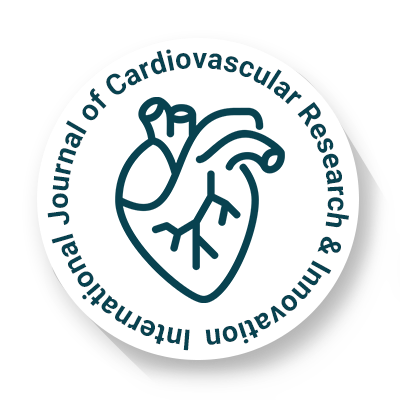
International Journal of Cardiovascular Research & Innovation
OPEN ACCESS

OPEN ACCESS

Background Health underpins exactly how much of a burden a long life is, even if medical progress has lifted the average length of a life. Lifestyle factors such as stress and strain due to the increasingly fast pace in today's culture may have severe impact on both physical and mental health of an individual. There’s a growing body of proof that Progressive Muscle Relaxation Therapy (PMRT), a non-drug treatment for lower-stress problems, may benefit patients across the board. This notwithstanding, in a therapy setting, the stress treatment of patients with CAD still remains poorly treated. Objectives The study participants were patients with coronary arterioles' disease, and the objectives were to study whether PMR was helpful in reducing stress in them. Methods The evaluation study used a quasi-experimental design. We selected 30 CAD patients as the experimental group, and, similarly, 30 CAD patients as the control group, using convenience sampling. In this trial, half of the women received PMRT and the other half, who had similar factors, received the standard care. Data was analyzed in terms of descriptive statistics (mean, standard deviation, percentage and count) and inferential statistics (Chi-square test, paired t test and unpaired t test) on the basis of information acquired by a structured stress assessment scale. Results A considerable percentage of the experimental group experienced mild stress (12%), moderate stress (24%) and severe stress (64%) in their pretest. Notable decreases of mild (62%), moderate (30.4%), and severe (7.6%) stress were recorded after PMRT. The p-value of the paired t-test (t = 10.353) was less than the critical value of p < 0.05, suggesting the decrease of stress due to the program intervention was statistically significant. In contrast, after the test, 6.6% mild stress, 20% moderate stress, and 73.3% severe stress were reported in the control group. Another endpoint that was highly indicative of the efficacy of PMRT was the huge difference in stress experienced between both groups, which is also reflected in the unpaired t-test value (t = 10.833). Conclusion Progressive muscle relaxation therapy is among the most successful stress-reducing treatments for individuals with coronary artery disease. Enhanced psychosocial well-being of patients and enhancement of comprehensive disease care are two advantages of incorporating PMRT in the routine care of cardiology.